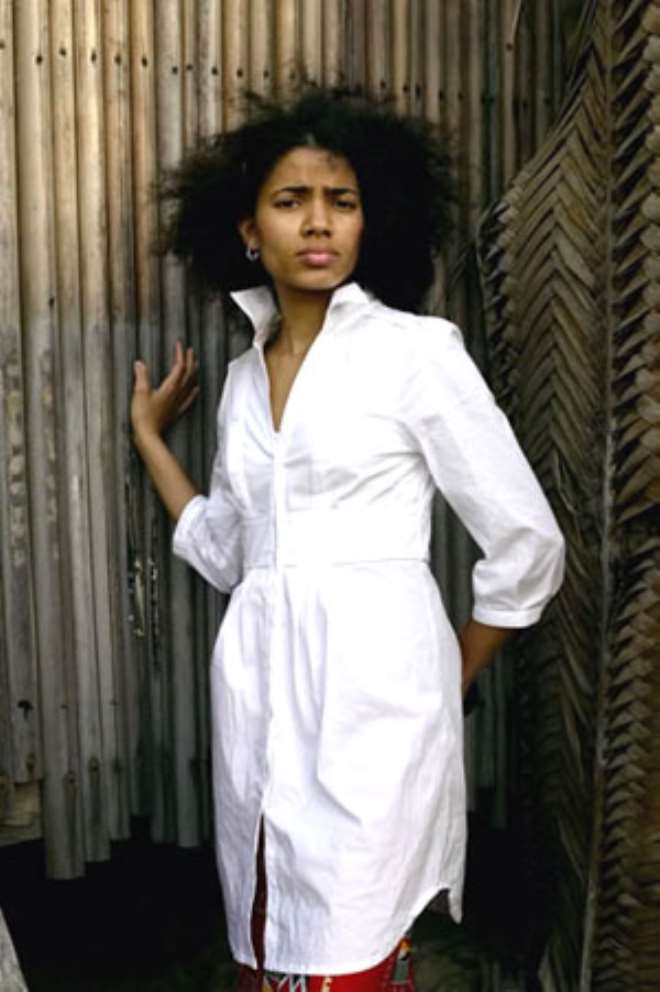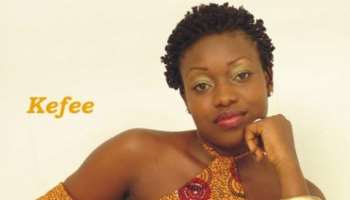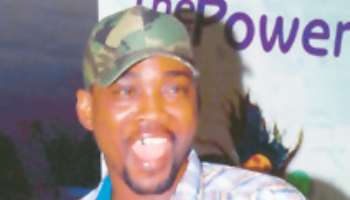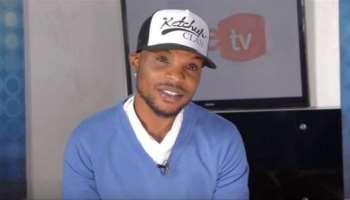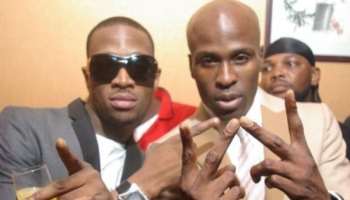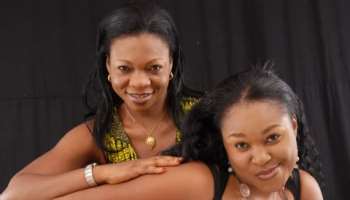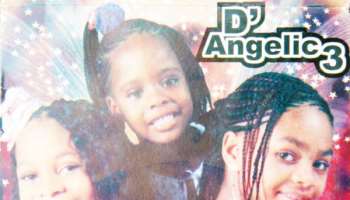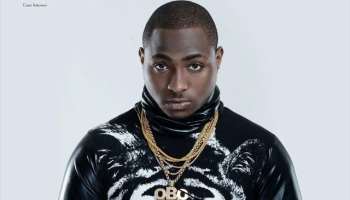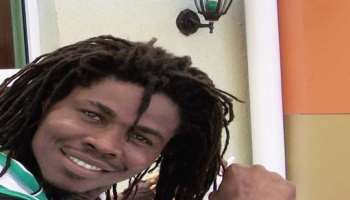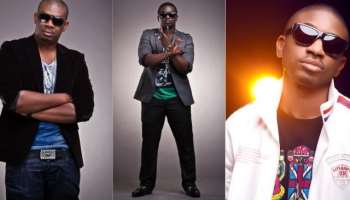I’m Not In Music For The Money------Nneka
Nneka Egbuna, multiple award-winning Nigerian soul singer tells FUNSHO AROGUNDADE about her music and life
You have been busy lately touring different countries across Europe and America for shows and concerts. What was the experience like?
It has been tedious running around the world. It has been a long, but inspiring tour, performing in different places with different great artistes.
How would you describe your success so far?
To be honest with you, I don't take them too seriously. Although winning the awards and receiving all the accolades are good, when people understand the message of my music, I feel better. Winning awards, of course, gives you more publicity. It is a good thing, but I do not allow these things to distract me.
But despite all the accolades and recognitions you've received, little is known about Nneka in her home country, Nigeria. Can you share a little about your career?
Well, I have been into music approximately seven years. It all started in 2000 when I first travelled out of Nigeria to Germany. I actually went out of the country not because of schooling or because of music, but there were some conditions that pushed me into leaving the country at that point in time. There, I found myself in a different country and having to cope with a different mentality. While there, I tried to find something that can help me get the balance and help sustain myself in a foreign land, and it ended up being music. Since then, music has sustained me. It helped me to finance my study through the university; it has also taken me to different places and made me experience things that I never dreamt of. For example, getting a recording contract with Sony Epic in the United States and another with Sony BMG in Germany. Then touring with top artistes like The Roots, Sean Paul and Lenny Kravitz. I've also been able to release three albums and the fourth is on the way and will be released next year. These are things I never thought I could achieve. All I wanted then was a simple life of peace and education, but music just fired up everything.
So you then settled for music as a means of survival?
No, it became something I really wanted to do. It's been something I wanted to do but when I began, it came like a therapy at that point in time. Still, music is something I have always felt a sense of connection with. That is why I always feel guilty when people give me money for my performance. It is like being in a church as a pastor and he expects the congregation to put money in the offering box, money that he claims for his own good alone. My involvement in music is more like a movement and not commerce or entertainment. Music is my life. It's like I'm giving the world a part of me. For example, working in the Hennessey Artistry project here in Nigeria is going out of my way to earn a living. I had to appease the spirit that was pursuing me after the deal by using the money that I earned from the project for charity.
Charity?
Yes, I already have an organisation that I founded together with a friend of mine, Ahmed Nyei, a Sierra-Leonean. It is called R.O.P.E. We've done a couple of charities in Europe and some African countries. What we do in R.O.P.E is to go to the less privileged and charity homes as well as schools, and get the children to express their connection with any particular subject through music, poetry and painting. We've done something on child soldier and capital punishment. Right now, we have an up-coming project in Warri where we intend to organise a five-day workshop titled Oil: Your Blessing, My Curse. On the last day of the workshop, we'll give the kids opportunity to exhibit their works and have an interaction with the media. I intend to use the money I got from the Hennessey Artistry project to finance part of the project for the organisation.
One aspect noticed in most of your songs is the Afro-consciousness. What could be responsible for this?
Living in a country like Germany for about five, six years pushed me into being more aware of where I came from. Germany is the extreme opposite of Nigeria. At a time, I tried to be more conscious of my origin. In my earlier days in Germany, I had contact with racism and prejudice. For the first time, I understood that I have colour, because when I was growing up in Warri, Delta State, it never occurred to me that I'm of mixed breed. Yes, people called me oyinbo, but not in a derogatory manner and I'm conscious of that about my complexion. But when I got to oyinboland, I was made to understand that I'm a nigger. So, it was like living in-between being white and black and not really being understood. That pushed me into being conscious of my heritage, conscious of my African tradition and culture. While there in Germany, I actually went back, did research and learn properly about our history. There are so many things I learned about Africa while living in that land that greatly influence my song.
Besides R.O.P.E, are you involved in any other project?
Yes, I am involved in projects with Nasir 'Nas' Jones and Darmian Marley. I considered it a great honour being selected to represent Africa in this project called the Distant Relatives tour. It represents the togetherness of different races, tribes, colours and different. We were on tour for about two months and finished about a month ago. The main essence of the concert was to show to the world that we all came from one place which is Africa, and no matter what colour we have, we are part of one origin, which is love.
How did you get involved in the project?
I learnt that Nas who had listened to some of my songs recommended me to the organisers of the project.
You also had working relationships with Lenny Kravitz and Femi Kuti. How was it like working with these two great guys?
My show with Femi Kuti was just a short tour. We never had a lenghty tour together. But Lenny Kravitz' was a three-week concert tour around Europe. For someone like Lenny who is very big, it was assumed that one cannot get any kind of direct contact with him. But on the contrary, he shattered that impression of him. I discovered him to be a very outgoing and very humble person. I learnt a lot working with him.
What is your relationship with the local artistes?
I don't really have too many friends in the Nigerian music industry. Except a few like Omawumi, with whom I went to school in Warri. I appreciate MI as a very conscious person. To him, it's not about earning all the money, yet, with the fame and glitz, he remains very humble and knows how to respect people. You don't find him drunk somewhere in a club like many other artistes do. Then someone like Asa, I look up to her because she also maintains her consciousness and state of mind. Also Sound Sultan surprised me when I was on tour with him. He doesn't drink alcohol or smoke. This attribute is rare to find in an artiste of his calibre and it has made me to start looking up to him as a man and as an artiste.
Why did you title your highly acclaimed second album No Longer At Ease?
I decided to give it that title because that's how bad I felt. I needed to say something because I'm no longer at ease with the situation in the country and I have to speak out the mind of the people in the Niger Delta. The album was dedicated to the Niger Deltans. I stressed a lot of political issues on that album especially the plight of the people in the Niger Delta, so I can't but titled it that.
How would you describe your music?
I can't describe it in any other way than it being a straightforward and heartfelt music. It respresents the way I am. I have a universal mind and free spirit. I believe I need to get my music across to all kinds of people in the world. I see it as a responsibility to represent the voiceless and speak their mind because our government and religious leaders seem not keen about the people.
What then influences your music?
Music is universal. Apart from some of the inspiration you get from happenings around you, one tends to be influenced by the versatility of music. I am very mixed. I have a lot of influence ranging from Afro-beat to hip-hop, rock, RnB and soul. Also, our indigenous music has a lot of influence on my music. My key influences include Fela Kuti, Nino Simone, Bob Marley as well as contemporary rappers like Mos Def, Talib Kweli and Lauryn Hill.
Most of your shows are concentrated abroad. When will Nigerians start having a feel of you?
I've been performing here too. It's just that I focus on some certain areas which are not elitist. Most of the shows that I do here are basically free shows. I recently did a free show at the Computer Village in Ikeja, Lagos. Our next shows will be in Mushin and Ajegunle. At the Computer Village show, I just came in, set up my stage and equipment and people came and I gave out my free CDs. I believe in free music for the streets. We also performed at the Shrine during the last Felabration. I am keen on connecting with the mainland crowd rather than the usual high-end people of the Island. I want to connect more with the grassroot.
Latest News
-
 I Don't Like Being Sprayed With Money —- Seun Kuti
I Don't Like Being Sprayed With Money —- Seun Kuti -
 “I Wouldn't Advise Myself To Be With Someone In My
“I Wouldn't Advise Myself To Be With Someone In My -
 Nollywood Actress, Etinosa Idemudia Stands With Ph
Nollywood Actress, Etinosa Idemudia Stands With Ph -
 Bobrisky Heads To Appeal Court, Challenges Six-mon
Bobrisky Heads To Appeal Court, Challenges Six-mon -
 “Sometimes, The Answers To Your Problems Lies In Y
“Sometimes, The Answers To Your Problems Lies In Y -
 “Man Of The Year" - Pretty Mike Crowns Portable
“Man Of The Year" - Pretty Mike Crowns Portable -
 Yingi Debuts "Waterside Girl EP"; A Melodic Journe
Yingi Debuts "Waterside Girl EP"; A Melodic Journe -
 Singer, Joeboy Reveals Criteria For Men To Know Tr
Singer, Joeboy Reveals Criteria For Men To Know Tr -
 “I Wish I Had Found Love Before Now– Spyro
“I Wish I Had Found Love Before Now– Spyro -
 Toyin Abraham Appreciates Funke Akindele, Barring
Toyin Abraham Appreciates Funke Akindele, Barring


